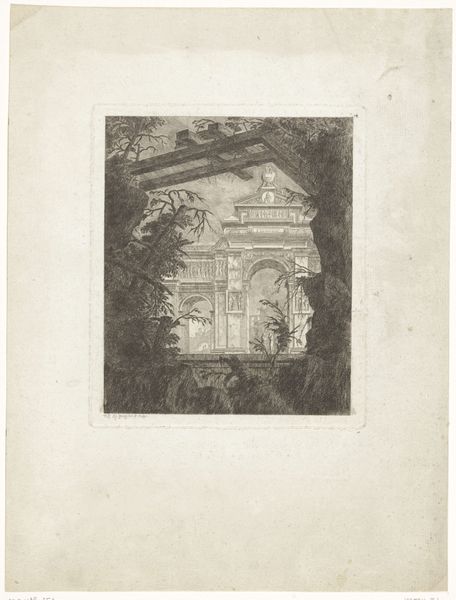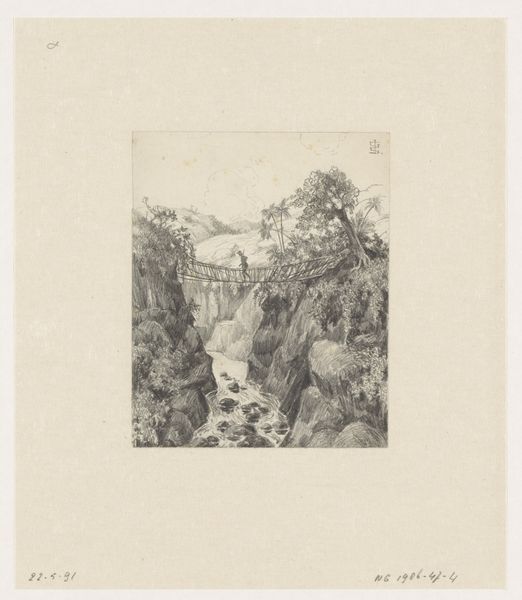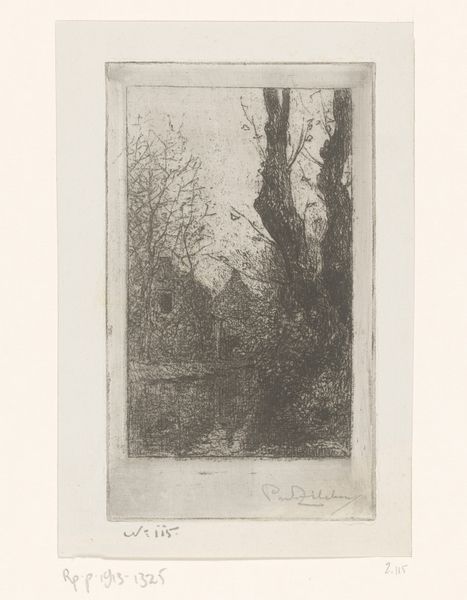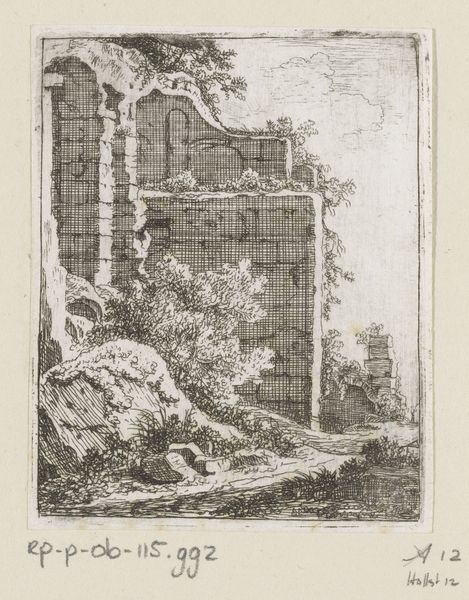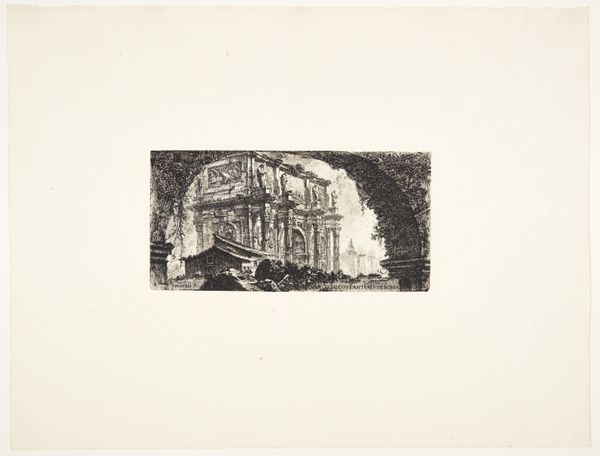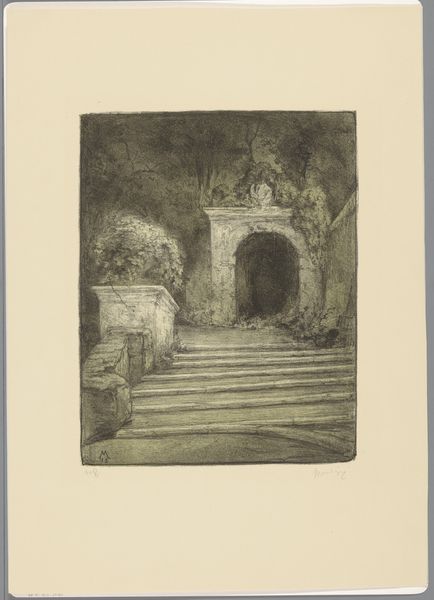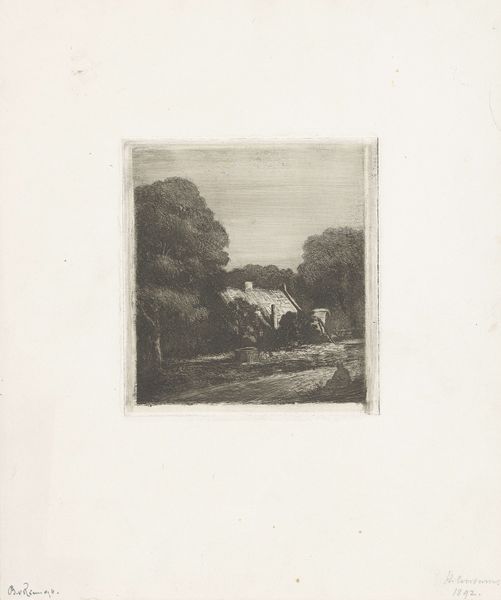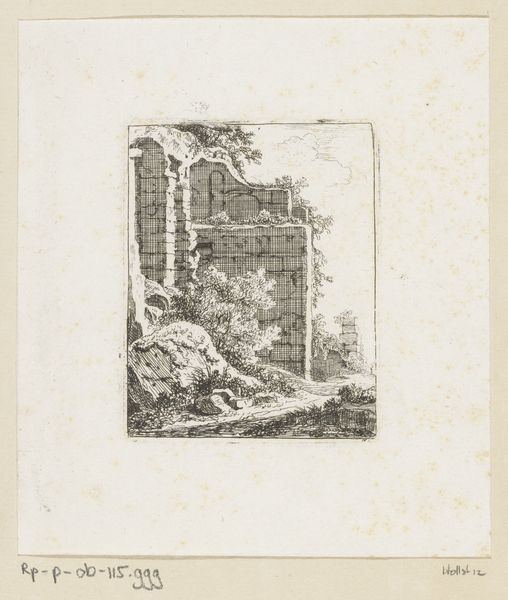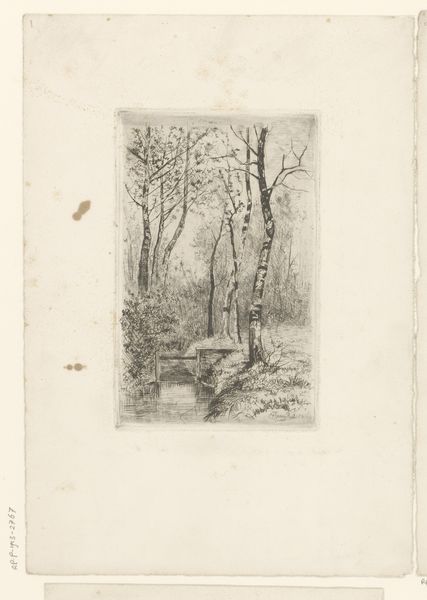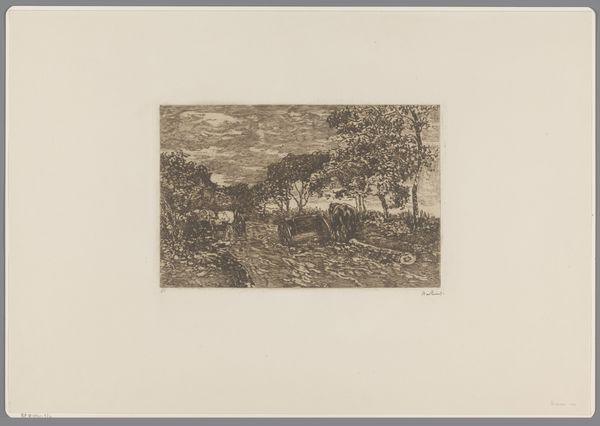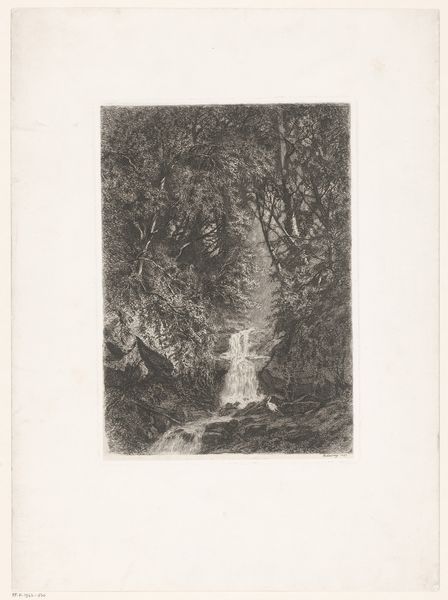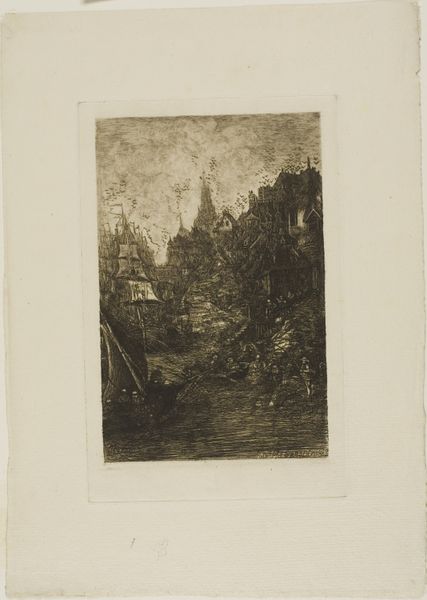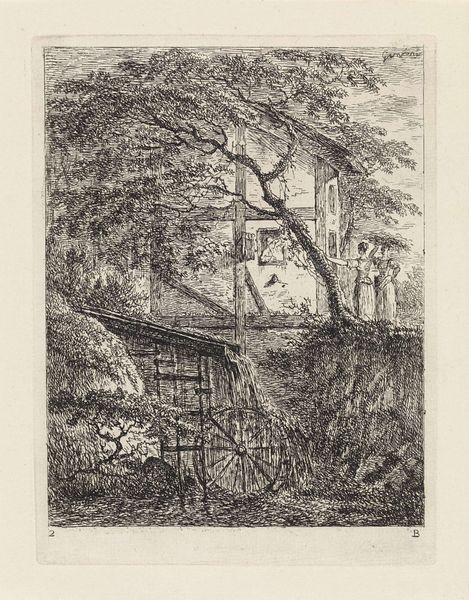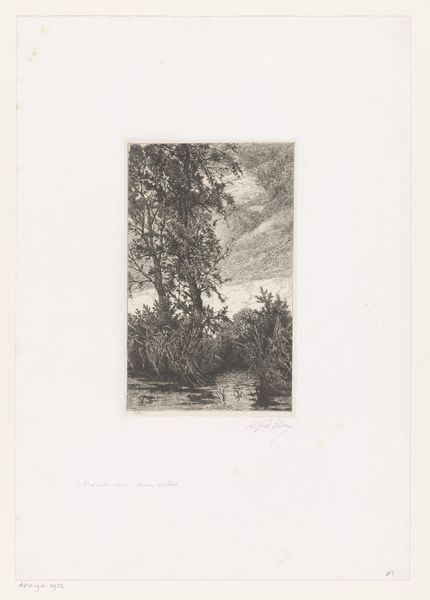
print, etching
# print
#
etching
#
landscape
#
cityscape
#
realism
Dimensions: height 94 mm, width 57 mm
Copyright: Rijks Museum: Open Domain
Curator: It reminds me of a forgotten dream. The tower...peeks out, hesitant almost, from a wild embrace of trees. It’s a whisper of grandeur in a landscape reclaiming itself. Editor: Arnoud Schaepkens created this etching, entitled "Toren Isaure", sometime between 1855 and 1904. Etchings such as these offer crucial glimpses into the developing urban landscapes and architectural ideologies of the era. Curator: "Glimpse" is the perfect word. It really does feel like finding something precious, almost secret, tucked away. There's something so immediate about it. A few lines and suddenly, boom, a whole mood. The texture too. I can practically feel the rough stone of the tower and the tangled leaves. Editor: The romanticism is quite deliberate, wouldn't you agree? Schaepkens isn’t just depicting a tower; he's creating a narrative. The overgrown vegetation obscures, challenging established hierarchies of power and order. Consider the social context: urban growth clashing with pre-industrial natural spaces, new forms of labour in tension with agricultural economies, etc. The artwork prompts a dialogue about these opposing cultural realities. Curator: Oh, absolutely. But it feels more melancholic to me. It's like a lament. He seems to ask, what's the cost of progress, of carving out new cityscapes? Where's the reverence, you know? Perhaps there is something profoundly personal in the artist’s exploration. Did he, I wonder, foresee how dramatically our world would continue to evolve and at what cost? Editor: Those questions are central to Schaepkens' broader commentary on urbanization, which serves as a powerful indictment against ecological oversight and disruption and as a vital statement about social and environmental negligence. Curator: Well, after looking closely at it, I certainly can see its social commentary aspects, even when on first impression all I noticed were personal impressions—memories perhaps—of half-remembered fairy tales. I’m curious to delve more deeply into Schaepkens now. Editor: Absolutely. The charm of "Toren Isaure" goes far beyond nostalgic impressions. Its socio-political commentary ensures it stays current to this day, as we remain immersed in those themes of human/nature struggles.
Comments
No comments
Be the first to comment and join the conversation on the ultimate creative platform.
